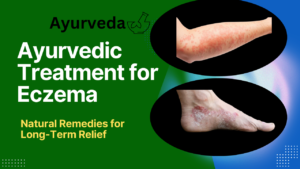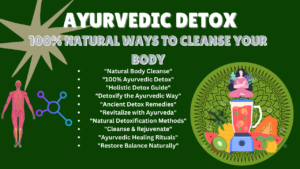
Ayurvedic Skin Care
In the quest for radiant and healthy skin, many are turning to ancient wisdom and natural remedies. Ayurvedic Skin Care offers a holistic approach to achieving glowing skin by harmonizing the mind, body, and spirit. Rooted in centuries of tradition, Ayurveda emphasizes balance and the use of natural ingredients to enhance skin health. This comprehensive guide explores effective Ayurvedic Skin Care practices and tips to help you achieve a luminous complexion
Table of Contents
Understanding Ayurvedic Skin Care
Ayurvedic Skin Care is based on the principles of Ayurveda, an ancient system of medicine from India. According to Ayurveda, skin health is influenced by the balance of the three doshas: Vata, Pitta, and Kapha. Each dosha affects the skin differently:
Tips for Glowing Skin with Ayurveda
Identify Your Skin Type
The first step in Ayurvedic Skin Care is to determine your dosha and how it influences your skin. This understanding helps tailor your skincare routine to your specific needs:
- Vata Skin: Dry, flaky, and prone to fine lines. Use moisturizing and hydrating products.
- Pitta Skin: Sensitive, prone to redness and inflammation. Opt for cooling and soothing ingredients.
- Kapha Skin: Oily, prone to acne and clogged pores. Choose balancing and exfoliating products.
Use Natural Ingredients
Ayurveda emphasizes the use of natural, whole ingredients for Ayurvedic Skin Care. Some popular ingredients include:
- Turmeric: Known for its anti-inflammatory and antioxidant properties, turmeric can help brighten the complexion and reduce redness. Use it in face masks or as a supplement.
- Neem: A powerful herb for detoxifying and purifying the skin, neem helps treat acne and reduce excess oil.
- Aloe Vera: Hydrates and soothes the skin, making it ideal for sensitive and irritated skin types.
Incorporating these ingredients into your routine can significantly enhance your skin’s health and appearance.
Incorporate Herbal Face Masks
Herbal face masks are a cornerstone of Ayurvedic Skin Care. They provide deep nourishment and target specific skin concerns. Here are some effective recipes:
- Turmeric and Yogurt Mask: Mix turmeric with yogurt to create a mask that brightens the skin and reduces inflammation. Apply for 15-20 minutes and rinse with warm water.
- Neem and Honey Mask: Combine neem powder with honey to cleanse and purify the skin. This mask is excellent for acne-prone skin.
Applying these masks once or twice a week can help maintain a healthy glow.
Practice Abhyanga (Self-Massage)
Abhyanga, or self-massage, is an essential practice in Ayurvedic Skin Care. Using warm, herbal oils for a full-body massage promotes circulation, improves skin texture, and enhances overall well-being. For facial care, use oils like:
- Sesame Oil: Suitable for Vata and Kapha types, it deeply moisturizes and nourishes the skin.
- Coconut Oil: Ideal for Pitta types, it has cooling properties that soothe inflammation and irritation.
Incorporate Abhyanga into your daily routine to promote glowing skin and relaxation.
Follow a Balanced Diet
Diet plays a crucial role in Ayurvedic Skin Care. Eating foods that balance your dosha can improve skin health from the inside out. Consider the following dietary tips:
- Vata Types: Include warm, moist, and oily foods like soups, stews, and avocados to counteract dryness.
- Pitta Types: Opt for cooling and hydrating foods such as cucumbers, mint, and coconut water to reduce inflammation.
- Kapha Types: Focus on light, warming foods and spices like ginger and turmeric to prevent oiliness and congestion.
A balanced diet rich in fruits, vegetables, and whole grains supports overall skin health.
Stay Hydrated
Proper hydration is fundamental to Ayurvedic Skin Care. Drinking adequate water throughout the day helps maintain skin elasticity and flush out toxins. Herbal teas like chamomile or mint can also support hydration and soothe the skin.
Get Adequate Sleep
Quality sleep is vital for skin repair and rejuvenation. Aim for 7-9 hours of restful sleep each night to support healthy skin. Establish a calming bedtime routine with practices such as meditation or gentle yoga to improve sleep quality.
Exfoliate Regularly with Natural Scrubs
Exfoliation is a crucial step in Ayurvedic Skin Care to remove dead skin cells and unclog pores. Ayurveda recommends using natural exfoliants that are gentle on the skin and free from harsh chemicals. One popular Ayurvedic exfoliant is Ubtan, a traditional herbal scrub made from chickpea flour (besan), turmeric, milk, and rosewater. It helps to brighten the skin and improve texture. Here are some other natural scrubs you can incorporate into your routine:
- Oatmeal and Honey Scrub: Oatmeal acts as a gentle exfoliant while honey moisturizes and soothes the skin. This scrub is ideal for sensitive and dry skin types.
- Rice Flour and Almond Oil Scrub: Rice flour gently buffs away dead skin cells, and almond oil nourishes the skin, leaving it soft and supple. This scrub is excellent for dull and tired skin.
Exfoliating 2-3 times a week with these natural scrubs will reveal a fresh, glowing complexion while keeping your skin smooth and healthy.
Harness the Power of Ayurvedic Herbs
Ayurvedic herbs are the backbone of Ayurvedic Skin Care. These herbs not only treat external skin conditions but also work internally to detoxify the body, reduce inflammation, and promote healthy skin from within. Some powerful Ayurvedic herbs to incorporate into your skincare regimen include:
- Manjistha: Known for its blood-purifying properties, manjistha helps in reducing acne, hyperpigmentation, and promoting an even skin tone. It can be consumed as a supplement or used in face masks.
- Ashwagandha: This adaptogenic herb reduces stress, which is a common cause of skin issues like premature aging and acne. By balancing the body’s stress response, ashwagandha improves skin elasticity and reduces wrinkles.
- Sandalwood: A cooling herb, sandalwood soothes irritation, reduces inflammation, and evens out skin tone. It is particularly beneficial for Pitta-type skin, which is prone to redness and sensitivity.
These Ayurvedic herbs can be used in various forms—herbal teas, face packs, or oils—to enhance the health and appearance of your skin.
Detoxify Your Body for Clear Skin
In Ayurveda, skin problems are often linked to an accumulation of toxins (ama) in the body. To achieve glowing skin, it’s essential to detoxify the body through a process known as Panchakarma or regular detox practices. Here are some simple ways to detoxify your body for clearer skin:
- Drink Warm Lemon Water: Starting your day with a glass of warm water and lemon is a gentle way to flush out toxins and improve digestion, both of which are essential for healthy skin.
- Herbal Teas: Teas made from herbs like fennel, ginger, and cumin are beneficial for detoxification. They improve digestion and help cleanse the liver, which is responsible for filtering out toxins from the body.
- Fasting or Light Eating Days: Ayurveda recommends regular fasting or “mono-diets” (like eating just kitchari, a simple dish made of rice and lentils) to give the digestive system a break and allow the body to detox naturally.
By following these detox practices, you can help your body eliminate waste and toxins, resulting in clearer, more radiant skin.
Practice Mindfulness for Radiant Skin
Your mental and emotional health plays a significant role in the condition of your skin. Stress, anxiety, and lack of sleep can lead to dullness, breakouts, and other skin issues. In Ayurvedic Skin Care, mindfulness and stress management techniques are considered vital for maintaining healthy skin. Here are some Ayurvedic mindfulness practices you can incorporate into your daily routine:



- Meditation: A daily meditation practice can calm the mind, reduce stress, and improve overall well-being, which in turn positively affects the skin.
- Pranayama (Breathing Exercises): Deep breathing exercises like Nadi Shodhana (alternate nostril breathing) help balance the doshas and improve oxygen flow to the skin, promoting a healthy glow.
- Yoga: Incorporating yoga into your daily routine improves circulation, reduces inflammation, and detoxifies the body, all of which contribute to healthy skin. Specific yoga poses like Sarvangasana (Shoulder Stand) and Bhujangasana (Cobra Pose) are especially beneficial for improving skin health.
By practicing these mindfulness techniques, you can reduce the impact of stress on your skin, resulting in a more balanced, glowing complexion.
Ayurvedic Daily Routine (Dinacharya) for Healthy Skin
Ayurveda places great emphasis on establishing a daily routine, known as Dinacharya, to maintain balance in the body and mind. Following a consistent routine helps in regulating the body’s natural rhythms and can significantly improve the quality of your skin. Here’s an example of an Ayurvedic daily routine for glowing skin:
- Morning: Begin your day with tongue scraping and oil pulling to remove toxins from the mouth. Drink a glass of warm lemon water to kickstart digestion.
- Skincare: After cleansing your face, massage your skin with an appropriate herbal oil based on your dosha. Use a natural face wash like a sandalwood paste or rosewater to cleanse your face.
- Diet: Follow a diet that balances your dosha, including plenty of fresh fruits, vegetables, and hydrating foods to nourish your skin.
- Evening: End your day with a gentle face massage using oils like sesame or coconut, depending on your skin type. This nourishes your skin overnight, leaving it soft and supple in the morning.
Following a daily routine tailored to your dosha will not only enhance your skin health but also contribute to overall well-being and balance.
Conclusion
Ayurvedic Skin Care offers a holistic and natural approach to achieving glowing, healthy skin. By understanding your dosha, using natural ingredients, incorporating herbal remedies, and maintaining a balanced lifestyle, you can effectively enhance your skin’s appearance and overall well-being. Ayurveda’s timeless wisdom provides practical and sustainable solutions for radiant skin, allowing you to embrace a beauty routine that nurtures both body and mind. Explore these practices and discover the transformative power of Ayurvedic Skin Care for a luminous and vibrant complexion.
FAQs
- How do I know my dosha type for Ayurvedic Skin Care?
- You can determine your dosha type by consulting with an Ayurvedic practitioner or using online dosha quizzes. Understanding your dosha helps tailor your skincare routine.
- Can Ayurvedic remedies be used with other skincare products?
- Yes, Ayurvedic remedies can be used alongside other products, but ensure compatibility and avoid mixing with products that contain harsh chemicals.
- How often should I use Ayurvedic face masks?
- Apply Ayurvedic face masks once or twice a week, depending on your skin type and needs. Overuse may irritate the skin.
- Are Ayurvedic oils suitable for all skin types?
- Ayurvedic oils can be tailored to different skin types. Choose oils based on your dosha: sesame for Vata, coconut for Pitta, and lightweight oils for Kapha.
- Can Ayurvedic Skin Care help with acne?
- Yes, Ayurvedic Skin Care can be effective for acne. Ingredients like neem, turmeric, and aloe vera have anti-inflammatory and antibacterial properties that help manage acne.
- What lifestyle changes can improve my Ayurvedic Skin Care routine?
- Incorporate a balanced diet, regular exercise, adequate hydration, and stress management techniques like meditation to enhance your Ayurvedic Skin Care results.





